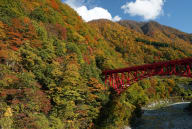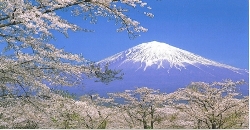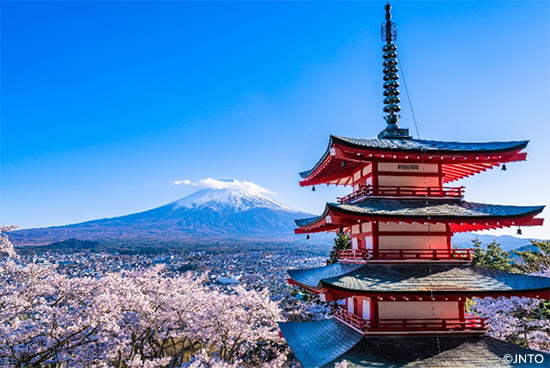Owari Desu This is my last entry for "Notes from Japan." I started this entry months ago and have only just completed it. On the 31st of July, I left Asagiri-Cho and returned to my home in the States. One year went by very quickly. This last month and a half has gone buy very quickly as I have been reacclimatizing to the states, building a new business and catching up with my friends and family. This is a little dated now, but I wanted a little space between the end of my travel and finishing this blog. Last days at School The Japanese believe that everything must have a recognized beginning and ending. For students it is the New Students Entrance Ceremony (neugakuski) and Graduation, for me it was a ceremony about one year ago where I met the students for the first time. Today was my farewell ceremony. The principal led me into the auditorium where all the students and teachers were assembled. They played the "Hello Song" which I have done hundreds of times this year. I decided to smile and be energetic so as not to be overwhelmed by the event. I sat alone in a chair at the front of the room in front of the stage. First the principal said a few words. Then the students were asked what they remembered about me.A sixth grader talked about a class I taught. A first grader said that I taught him "Zoom Gali Gali" (a Hebrew folk song and dance). Then another first grader got up and demonstrated the steps, I hadn't thought they had enjoyed that one at all, who new? In fact who really knows? I gave my speech, reading a transliterated version I had been practicing all week. I didn't try to give the speech in English because, they wouldn't understand, and I would not have gotten through it. After some students demonstrated some English with me and presented me with some flowers, they arranged themselves in a formation so I would walk through them on my way to the door. I shook hands with or high-fived the first two rows on both sides. I reached the door, turned around bowed, turned again and walked out of the gym. I took a moment for a breather in a small Japanese "Tatame" room off the teachers break room. It was the same little room I signed my re-contracting decision form in 5 months ago. The day went mostly like other days at Menda, I had four classes where I did my lesson on my family and life in the USA. After every class students asked me to sign their notebooks, papers, name badges, pencil cases and hats. I spent much of lunch recess signing every scrap of paper in the first grade classrooms. Other last day ceremonies followed the same basic pattern the Junior Highs had ceremonies in English led by students. One boy read me a letter he had written, "Dear Mr. Joshua, Thank you for teaching us. We think your classes are interesting, so we like you. Please do your best in America." Some of the Nursery Schools had prepared ceremonies and some had not. It was all at times overwhelming. Naturally, there were many drinking parties as part of the send off ceremonies. Order in Japan Some foreigners fall in love with traditional Japanese art like Kabuki Theater or the painting of Kanji characters with a brush and ink well. Some are moved to tears by natural wonders such as cherry blossoms or Mount Fuji. I have found another simple ritual that brings a tear to my eye. When in a domestic airport (the kind that serves 99.9% Japanese passengers) I love to watch people line up to get on their flight. The announcement is made; all people get up and form 2 even lines. When boarding begins, each and every passenger holds their ticket in their right hand with the stub facing towards the gate. Once the line starts moving, it continues until everyone is on the plane. I have never seen anyone walk up to an agent and say, "Oh, now hang on a second, where is that thing?" People simply know how to make this process run smoothly and they do it. Maybe in grade school there is an exercise where students are taught how to board a plane and what the proper etiquette is. The whole process takes less than 5 minutes for everyone to be sitting down and the plane to pull back. As the plane pulls back, the members of the ground crew line up on either side of the plane. They wave at the passengers, then, just as the plane is passing they bow before going back to their stations. School Lunch There is plenty not to like about q-sho-cu, the school lunch that everyone (who is not a strange foreign vegetarian) must eat. Every student, from six to fifteen, must drink and finish a bottle of whole milk during each lunch period. But it does engender a sense that indeed everyone is together. The four year olds in nursery school have already been strongly socialized through, among other things, school lunch. The teacher has one or two student helpers who pass out the placemats, silverware and plates. The process takes about 5 minutes from the time the first plate goes out to the time every student has all the plates and they can start. Children are not generally known for their ability to wait patiently or delay gratification. But some how, these students sit in their chairs, looking at the food and talking to each other until it is time to eat. When time comes, in unison they say "Oto san Oka san, Arigato. Oishi qshocu itadakimas" "Father, Mother, Thank you, I humbly receive this delicious school lunch." Only then can they start their meal. The students are effectively socialized to be patient from an early age. Celebrity I was at a dinner recently where a woman came up to me and said she remembers seeing me in the Taragi Hospital a few months ago when I was getting my medications for my trip to Cambodia. Another man remembered seeing me do Karaoke at a Fire Works Festival last fall. It is not unusual for someone to tell me they saw me earlier that week or month at the supermarket or on my bike. Living in rural Japan one truly experiences fame. It is cool. I enjoyed my life as a celebrity, but I do not miss it now. If people are always watching, you feel you always have to be "on". I took seriously my role as an informal good will ambassador and wanted people to have a reasonably good impression of me as their representative of Americans, Jews, English speakers, Westerners and in reality that whole other 98% of the world who is not Japanese. On one leg of my flight home, I sat next to a guy named Shane. He is the Canadian drummer for B'z, a popular Japanese rock band. Since I am ignorant about J-Pop, I talked with him about my experiences in Japan particularly in the schools. I mentioned to him a line many foreign English teachers will say that because of all the attention we receive here, "we are rock stars in Japan". I said it was funny to meet him because; he is an actual rock star in Japan. Well...at least I thought it was funny. Safety I don't often lock my windows. Frequently I leave my front door unlocked. I stopped at a convenience store on the road in a town I don't know that well and left my car unlocked with more than $2000 in cash in the glove compartment. I don't do these things because I am either lazy or forgetful. I do it because I can. I love being in a place where you don't have to think about where you are walking or if everything is secured. Regarding Directness The Japanese have what might be described as an affinity for things that are not always clear and to the point, rather, sometimes meandering and imprecise. To wit, Today was a sports day at Ue Junior High. I showed up and was told that I could participate in activities with the students. "Cool" I said, "what activities are on the schedule?" The teacher told me there would be soccer, basketball, volleyball and badminton. Josh: Great I love volleyball! Sensi: Perhaps you would like to play basketball or soccer? Josh: I actually have no skill in basketball or soccer. Sensi: You would probably enjoy it. I tried to explain that even though I am from America, I am no better equipped to ref a basketball game, than the PE teacher is to design a new hybrid engine for Toyota. But that didn't seem to convince them. So, I was a ref for the first three, five minute games. I actually have no idea what a basketball ref should be doing other than running up and down the side of the court to keep a eye on the ball. At one point I saw what was clearly a foul, the two students looked at me. Since I wasn't quite sure what to do, I shrugged and they kept on playing. Eventually, I handed my whistle to another teacher. Today was certainly not my first experience with the Japanese trademark indirectness. Every day I try to figure out what people are trying to instruct me through vague suggestions. For example: I missed seeing you at lunch time. = You will eat lunch with my class tomorrow. Two years ago I was looking into visiting Adam when he was here (a trip which never materialized). I asked the Japanese agent what flights were available from Newark, NJ Agent: Perhaps you would like to fly out of JFK. Josh: No, I would rather fly out of Newark if that's possible. Agent: Maybe you would like us to arrange transportation from Newark to JFK. Josh (as The Great Gaijin Idiot): No, what I want is a flight out of Newark airport if that is possible. Agent: This may be a little difficult. (Translation: "are you out of your damn mind?") Josh: Are there any flights out of Newark? Agent: Maybe....no. "Japan has 4 Seasons" I saw the above phrase in a guide book before coming to Japan and thought, "Well duh, doesn't everyplace have four seasons"? Yes, but not like this.When I first arrived in Asagiri, I had never seen rice fields before. It was summer, so the rice plants were tall and green. Every day was hot. There were many welcome parties, and then I started visiting the schools. It seemed that most every evening there was a festival with a fireworks display. The weather started to cool. I rode my bike around the mountains of Ue. There I saw a farmer harvesting his rice field. He stopped driving his tractor and offered me some cold tea. A man invited me to his home and served onigiri made from fresh rice. It was delicious. I settled into my routine of going to the schools and teaching. Menda Elementary had their sports festival and the Judo club invited me to practice with them. In the winter, the weather was very cold. After school, at night I would cook dinner and sit under my Kotatsu. Then I would go to the Onsen and get warm before coming home to go to sleep. At the coldest point I wore sweats and a hat under 5 heavy blankets. I went to culture festivals and over the holiday traveled around Japan. I watched the 6th graders in Elementary School become 1st graders in Junior High and I watched as the 3rd graders in Junior High moved on to High School. In the new students opening ceremony, my former nursery school students became 1st graders in Elementary School. The spring started with the Beautiful Plum blossoms in Hitoyoshi and later the Cherry blossoms in Mizukami. The Junior High Schools held sports festivals and fresh fruits and vegetables were available everywhere. As the rainy season was beginning, I saw farmers again transplanting rice plants into their fields. Soon the young shoots were growing quickly. I watched as they grew taller and began to recognize the scene from one year earlier. I wished they would grow more slowly so I would have a little more time here, but of course they would not heed such a foolish request. Now is the summer again. I have enjoyed all the four seasons in Asagiri-Cho. To all my friends, thank you for your kindness and for making me feel welcome in Japan. - Joshua Bernstein Fall 2006 http://www.jewinjapan.com/ Josh Bernstein JETAA 2005-2006 Asagiri, Kumamoto Prefecture
The Last Notes from Japan
June 22, 2013



















































